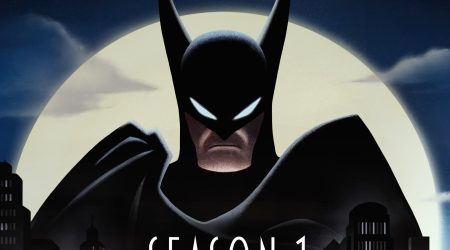
While listening to many soundtracks during the awards season, I discovered the lovely music for the game Planet of Lana, composed by Takeshi Furukawa. Since that amazing score I made the commitment to check out more of Furukawa’s work when it would come out. I did not have to wait long since he composed the music for the live-action Netflix series Avatar: The Last Airbender, based on the popular animation show from the early 2000s. One of the strengths of that animation is its rich story, which is set in a very diverse world and has many different well-developed characters who can manipulate an element like water, air, earth, or fire. Those strengths are also implemented very well in this new live-action adaptation, offering the opportunity for a fantastic score to support all these different aspects, and Furukawa delivers on that perfectly.
For this series, Furukawa wrote a stunning orchestral score with occasional help from different kinds of choirs and many traditional Asian instruments. In addition, you can find many themes in this leitmotif-driven score. Some are new, but others are reimagined from the original animated series, composed by Jeremy Zuckerman. I will not get into much detail about these themes since I would have to rewatch many parts of this Netflix show and the original series to see what they are. I have to mention the main theme, though, representing Aang the Avatar, which is from the original animation. As far as I can tell, the album has no complete version of the theme. You can hear a small fraction of the theme in “Prologue & Main Title” at the one-minute mark and a more fleshed-out version halfway in “Just the Beginning,” with its solid orchestral foundation with the help of taiko drums. Another iconic reimagined piece of music from the original show is the end credits music, brilliantly recreated by Furukawa, as can be heard in “End Credits. “
Another excellent aspect for this soundtrack is the extraordinary way Furukawa is able to add emotion to the music. The series has many mostly negative emotional moments that can be heard in the music. The show has some big one-sided battles, which are marvelously scored with big sounding orchestral cues, with the choir added on top of it, bursting with despair, as can be heard in “No Survivors,” the final part of “Moon Slayer” or in the middle of “Aang Becomes the Ocean Spirit.” There are also many sentimental cues to be found, which are also amazing. The highlights of these cues are focused on the firebending character Zuko, who should have been the adversary of avatar Aang, but there is more to his story, as can be heard in tracks like “Lu Ten’s Funeral” and “Zuko’s Return,” which sound more sentimental or heroic.
There are many themes and leitmotifs with different melodies, but there are also different soundscapes to be heard, to represent all the various nations in this rich world. The sound for the air benders with their excellent long orchestral melody lines completely differs from the lower sounds of the earthbenders with the male choir and Chinese instruments, as you can hear in “Southern Air Temple” and “Omashu” respectively. I also need to mention the brilliant chants by the Japanese female choir that can be discovered in the music representing the people on Kyoshi Island, present in the track with the same name, “Kyoshi Island.”
When listening to the score and watching the show, I had to think about the movie The Last Airbender with the beautiful score by James Newton Howard. That movie tried to cram an entire season of a TV series into one film and totally failed to deliver. I have always wondered what would have happened when it would have been a success and we could have heard more of Howard’s wonderful music. Luckily, this is not the case for the Avatar: The Last Airbender Netflix show since two new seasons have been announced after the huge success of the first one. So, we will be hearing more of Furukawa’s extraordinary music in the near future.
Listen or buy
- Buy this soundtrack digitally from Amazon.com or Apple Music
- Listen to this soundtrack on Spotify
Tracklist
The highlights are in bold.
- Earthbender (2:50)
- Prologue & Main Title (1:30)
- Southern Air Temple (1:04)
- You Are the Avatar (4:01)
- No Survivors (7:14)
- Katara (2:30)
- The Boy in the Iceberg (2:18)
- Sky Bison (1:09)
- Kyoshi Island (1:21)
- I Just Haven’t Seen the World (3:32)
- Commander Zhao (1:46)
- Suki’s Training (2:02)
- Omashu (2:11)
- Aang Fights Zuko (1:44)
- Lu Ten’s Funeral (1:37)
- Tale of Two Lovers (1:52)
- An Old Friend (2:32)
- Memorable Journey (3:01)
- Scorched Forest (1:54)
- Lowlife Bounty Hunter (2:03)
- Pohuai Escape (5:25)
- Zuko’s Return (6:52)
- Agna Qel’A (1:44)
- Princess Yue (1:51)
- Moon Slayer (3:44)
- Aang Becomes the Ocean Spirit (4:15)
- Just the Beginning (1:14)
- End Credits (3:04)
Total length: 1 hour and 16 minutes
Netflix Music (2024)




